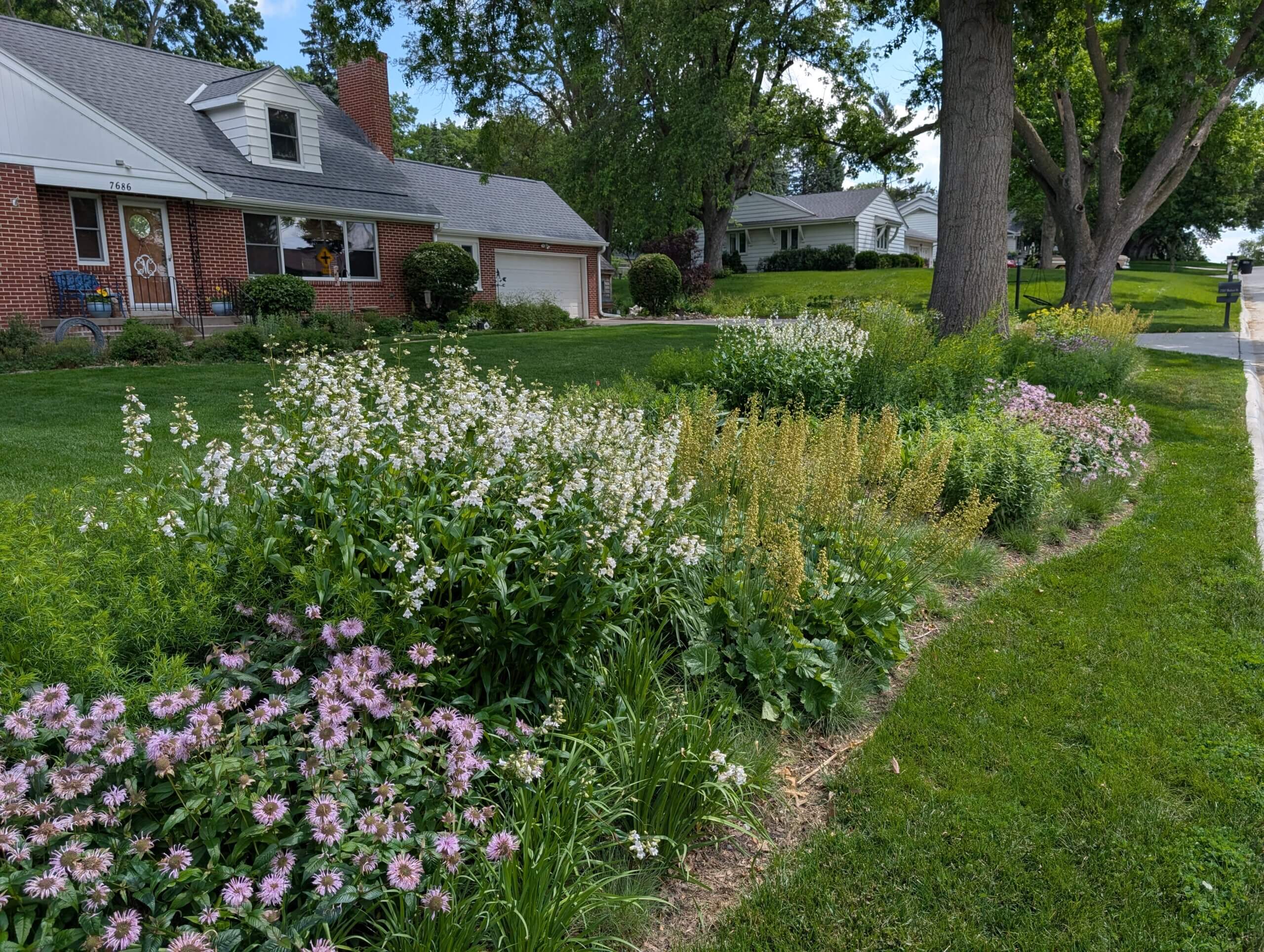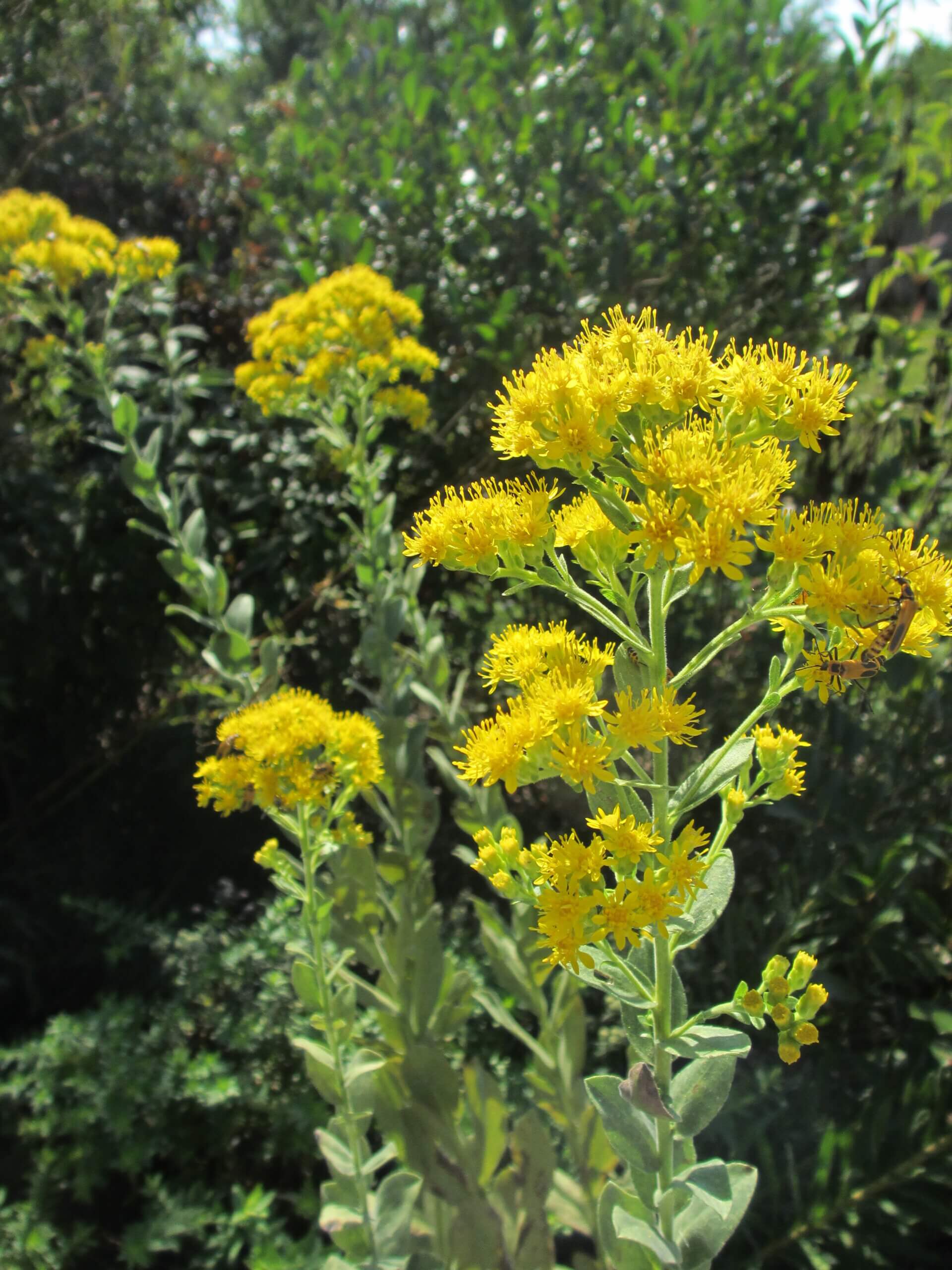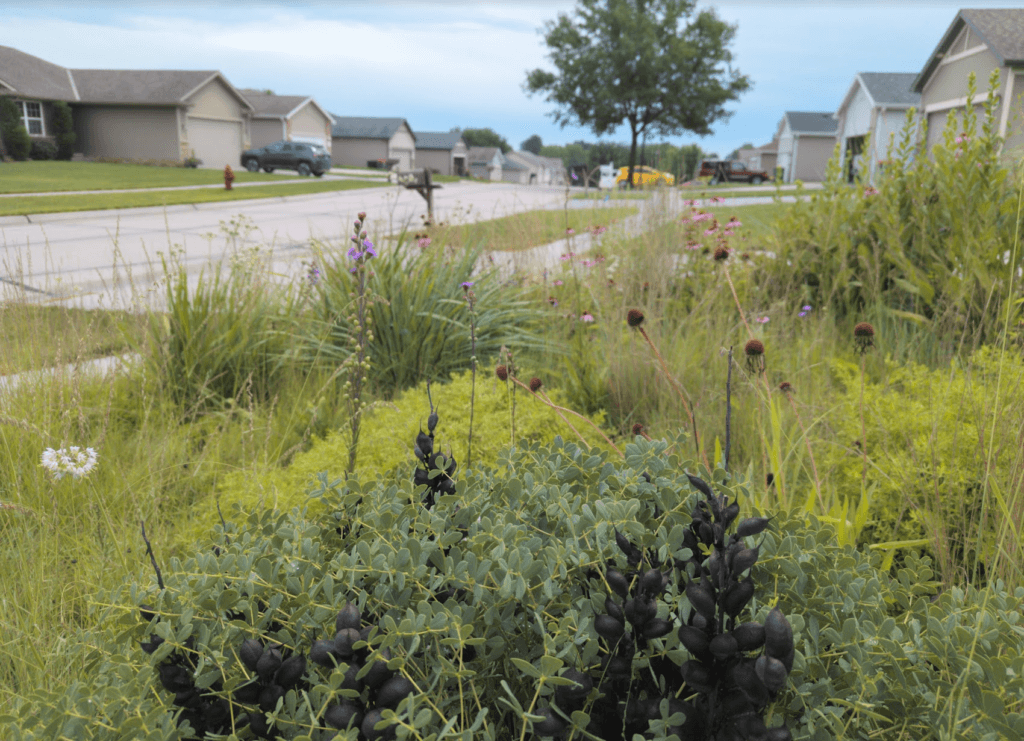
On Home Affordability, Poverty, and Unlawning America
I don’t know who that Michael Green financial analyst guy is who looked at one county in NJ to state
If climate change and mass extinction aren’t the first subjects we’re addressing in garden design and horticulture, then perhaps these fields are a waste of time. Ready for a long, deep dive into ecophilosophy?
For years and years the older version of this blog featured bold statements (see, I just provided one) via many thinking pieces, short essays that challenged our preconceptions of self and gardening. This post is going to revive that tradition as we plunge into the winter months where I know many of us are reading and reflecting.
I was recently inspired by an excerpt that the superb environmental philosopher and activist Derrick Jensen shared from his book Dreams. What I appreciate about Jensen is that he opens up doorways to the cross pollination that occurs between human and non human cultures — and the reflections that ensue can be uncomfortable but also liberating. In the end it’s the latter we’re after, to be liberated from a culture of oppression, and to see how the oppression of other species is the oppression of ourselves and each other — and for gardeners our managed spaces out the back door reflect a daily experience with nature that reflects our core values. The questions that arose while I read Jensen’s excerpt where many:
In what ways does horticulture silence the voices of others? How does horticulture privilege one species over others? How is horticulture a form of colonialism? What tools or language or social constructs (capitalism, freedom, individual rights) do we use to help us feel better or accept the exploitation of other species, especially for purely ornamental reasons? How do we normalize human supremacy in horticulture so we hardly notice it, or when we do notice it, work even harder to defend it because our identity is wrapped up or based on that supremacy? I want to move through some of these ideas step by step based on excerpts from Jensen. Are you ready?
——-
1)
“Before you can exploit some others you must silence them, or rather deafen yourself to their suffering, and more fundamentally their subjective existence. As I wrote in “A Language Older Than Words,” “The staunch refusal to hear the voices of those we exploit is crucial to our domination of them. Religion, science, philosophy, politics, education, psychology, medicine, literature, linguistics, and art have all been pressed into service as tools to rationalize the silencing and degradation of women, children, other races, other cultures, the natural world and its members, our emotions, our consciences, our experiences, and our cultural and personal histories.” Another way to say this is that it would be extremely difficult to rape (or enslave, dispossess, exploit, and so on) someone if you were to in any meaningful way attend to the suffering you are causing, if you were to perceive this other as a subject worthy of consideration, and not as a resource. Yet another way to say this is that objectification is a necessary precondition and precursor to exploitation. “
For years I’ve argued that nature is not a resource. When I hear someone mentioning “natural resources” I hear a code phrase for exploitation of nature for the benefit of one species. Nature is not a resource for us to use how we see fit; nature is an independent organism made up of diverse cultures and individuals who have rights equal to our own. What rights does a river have to flow where it wants vs. being diverted for hydro power or to irrigate crops? What right does a tree have to grow where its seed has landed? What right does a bee have to nest where it has chosen, a home it perceives as safe for its young? What right does a flower have to not be plucked from its stem and rendered useless to the ecosystem? Jensen makes me reconsider how we use ornamental horticulture as a way, at times, to ignore the individuality of plants and their natural inclination to do what they want. Consider how we remove unwanted seedlings from a bed, or manipulate plants to create hybrids with ornamental features we desire without understanding the ramifications for larval or adult pollinators attempting to feed on that plant; for example, what happens to palatibility when we change leaf color, or the nutrient make up of nectar or pollen when we alter flower size or color?
2)
“This culture is based on exploitation, and the more invisible and normalized a society (or you as an individual) can make the objectification of others—through religion; philosophy; epistemology epistemology; folklore; social conventions; economics; law; government—the more difficult it becomes for members of this society (or you as an individual) to even attempt to perceive (and help members of this culture to perceive) the subjective existence of others, to see that these others actually exist.”
While it is likely our intent in making gardens is to honor nature, to get closer to it, to understand it better, it’s also true that the act of making a garden is an act of domination, exploitation, and objectification. We’re taught, ideally, that women aren’t to be objectified or seen as objects to be exploited based on their physical appearance, and yet we do the same to plants and even large natural vistas. I suppose the line between appreciation / celebration and objectification / exploitation is very fine or at least very murky. And that’s understandable — that’ s part of a dominate species like ours working its self out, working out its role in the ecosystem, living our dichotomies which help us think critically through hard realities. Do plants exist apart from our placing them in our landscapes? Do plants exist separately from how we present them in combination with one another in an artistic representation above the ground plane? What about animals that inhabit and use our gardens?
One of the most contentious points of discussion I discover in conversations like this is the apparent incompatibility of a culture that values individual freedom and rights, and the reality of culture that jerks its knee hard when those practicing those rights don’t conform to the idealized definition or examples of individual freedom and rights. For example, you are free to plant what you like in foundation beds around your home, but those beds must be narrow and mulched while the lawn constitutes a significant majority of the landscape. Another example not wholly unrelated is that we encourage one another to follow our passion and voices, but not to do so if those passions or voices ask us to think more critically about who we are, this is why we use labels like “radical activist” to dismiss those who challenge us. Racial and gender equality, environmentalism, and a myriad of social justice issues are all umbrellas under which fall voices that ask us to rethink who we are as we work toward a better and just culture — a journey that will never be easy but is obviously necessary.
Here’s the deeper question — how do we transfer our idealized rights of equality to other species, thereby granting them the ability to pursue their own liberty and right to existence unencumbered by us? When we grant liberty to other species, we don’t become less liberated or less free ourselves; when we list the sage grouse as threatened with extinction and create land management practices to preserve their species, we’re not limiting human freedom. We’re ensuring humans continue to have the ability to exist by maintaining an ecosystem that is healthy, diverse, and fully functional — because our comfortable 21st century lives are based on the diversity and health of a thriving planet, not on thriving commerce. Freedom is predicated on a healthy, working, biologically diverse world. If we’re cloning plants we’re not adding to diversity. If we’re using plants local wildlife can’t recognize, we’re not adding diversity — we’re erasing it by erasing entire cultures.
We deny the rights of others when we deny they have language, or a way to communicate or act separately from our own conceptions of what language is or what actions are valuable or not. This act of denial is an act of superiority — if we say others don’t have will or language or subjective desire, we can use them how we want with no harm done.
3)
“It’s the same arrogance (and ignorance) that somehow finds human superiority in the fact that chimpanzees who have been kidnapped and held in prison by scientists are able to learn only a certain number of American Sign Language symbols; these scientists insist that this means that humans are the only creatures who have language, and “that the chimpanzees are not using language, but rather simply using these signs as a means to an outcome, rather than to express meanings or ideas.” None of these scientists ever asks the question: if a bunch of chimpanzees kidnapped you, isolated you from your entire community, and started performing experiments on you, how long would it take you to learn chimpanzee? And more to the point, none of these genius scientists ever asks the question, “Between the kidnapped chimpanzees and the scientists, which of these creatures is bilingual?”
It’s actually much worse than this. Not only must we, when trying to comprehend the preferences of others, deal with the difficulty of speaking entirely different languages, and not only must we deal with the fact that the intelligence of these others are entirely foreign to us, but we also must deal with, as I’ve been discussing in this book, a several-thousand-year history of systematically deafening ourselves to the voices of these others in order to facilitate our exploitation or murder of them. So given all that, it’s extraordinary that I or any of us can routinely perceive the preferences of others at all. It’s so much easier (and more flattering) to just pretend these others are not subjects, and in fact to build up entire religions, economies, philosophies, epistemologies, and so on that buttress this conceit. Where do you draw the line, and why do you draw it?”
In the last chapter of my book A New Garden Ethic I briefly touch on the way plants communicate with one another, and how they interact with the environment and other species around them. From volatile organic compounds released in the air, to electrochemical signals in their roots, to ultraviolet markings on their petals and positively or negatively charged flowers, plants communicate. Whether that’s enough language to grant them inalienable rights is something for philosophers to debate and scientists to discover, but what happens if we just say a plant or an animal has equal rights to us? What about a mountain or a prairie or a lake? I’ll tell you what happens — our entire culture makes a radical shift from seeing humans at the top of the evolutionary ladder and instead part of the web. When you are part of something larger than yourself you can either feel small and insignificant and powerless, or you can feel worthy and integral and connected in ways that are comforting and consoling (and empowering).
We have a horticulture system that tends to celebrate plants like they are designer clothes or shiny new cars — models wearing our desire that’s only skin deep. We manipulate life, we reproduce life as part of an industrial capitalist machine that sees nature as a commodity and a product. Does that mean the practice of gardening or finding plants pretty is bad? Of course not. But doesn’t it depend on where that impulse comes from and how it’s enacted? If our first priority it to create gardens people swoon over, and then champion we saw a generalist bees species or common bird using the plants, we’ve missed the point entirely and are simply trying to adjust our optics without making powerful and fundamental changes (aka greenwashing). If we’re making garden choices based on how plants work together to form an ecosystem, considering how plants work with one another and how they support specific fauna, then we’re elevating garden making by fostering greater understanding and appreciation for nature. I don’t think you can plop the newest coneflower hybrid into a landscape and say you’re helping nature because it’s a native plant. Unfortunately, the kind of rewiring and rethinking I’m calling for is hard work — it taxes us to not only read more and be more considerate in our actions, but it means we can’t simply always follow our impulses at the nursery or in a shiny new catalog arriving in January.
Horticulture can and should lead us into an environmental awakening that reconnects us to the web of life and that ends our tendency to exploit nature for our own aesthetic desires only. Gardening is not just about pleasuring or honoring ourselves — it is about addressing human supremacy by redressing wrongs we’ve forced upon the natural world (lawn, impermeable surfaces, CO2, deforestation, mining, climate change, etc). I’m not saying gardens are penance, and I’m not even saying they are necessarily places for social activism — they can be both of those for sure. I’m saying gardens are not paintings, they are not sculptures, they are not composed for just one species. When the practice of horticulture is navigated with critical thinking — what is being impacted when I do x, who am I effecting when I do y — then we become empowered liberators of all life and ultimately ourselves. That’s when horticulture becomes the instrument of hope meeting action that we all wish it to be.
Is that too much to carry or consider? I don’t think so — not in a world of climate change and mass extinction. Not in a world we have now remade as one giant garden we must tend to for the survival of all us together.

I don’t know who that Michael Green financial analyst guy is who looked at one county in NJ to state

Oh that’s a cool plant, stiff goldenrod, Oligoneuron rigidum. I wonder if that would work in my garden. Maybe it’s
